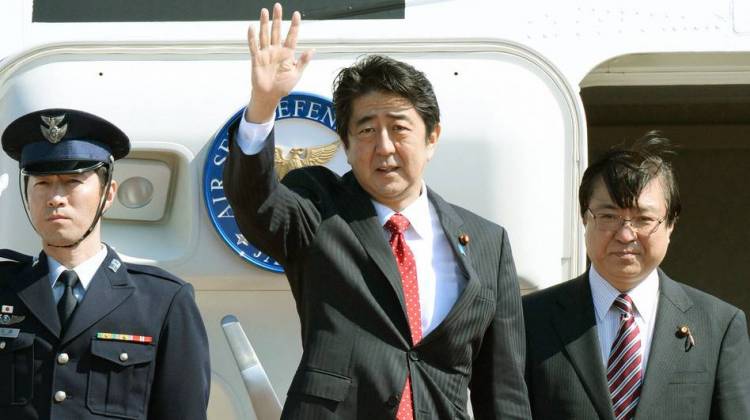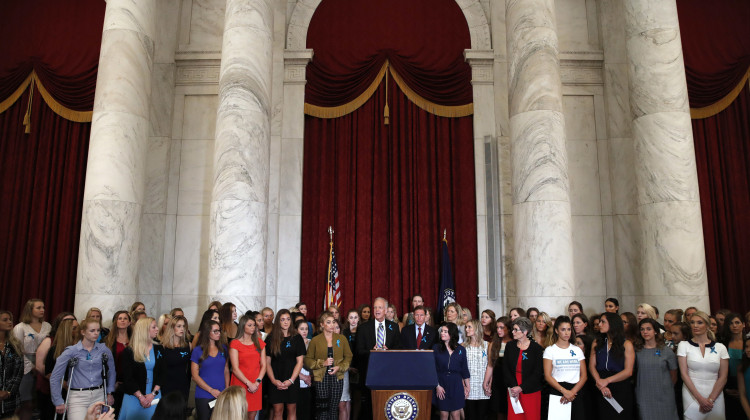Japan has agreed to hand over to the U.S. a decades-old stockpile of weapons-grade plutonium and highly enriched uranium that is said to be large enough to build dozens of nuclear weapons.
The 700-pound cache, which had been maintained by Japan for research purposes, would be turned over to the U.S. for safe-keeping, according to an agreement finalized at the G7 nuclear summit in The Hague. It's part of an administration push to secure such prevent the nuclear material from being stolen by potential terrorists.
"This is a very significant nuclear security pledge and activity," U.S. Energy Secretary Ernest Moniz told reporters at the summit in the Netherlands. "The material will be transferred to the United States for transformation into proliferation-resistant forms."
Yosuke Isozaki, a senior national security adviser to Japanese Prime Minister Shinzo Abe, said through a translator that: "Japan shares a vision of a world without nuclear weapons."
"The Japanese agreement to transfer the material has both practical and political significance. For years these stores of weapons-grade material were not a secret, but they were lightly guarded at best; a reporter for The New York Times who visited the main storage site at Tokaimura in the early 1990s found unarmed guards and a site less-well protected than many banks. While security has improved, the stores have long been considered vulnerable.
"Iran has cited Japan's large stockpiles of bomb-ready material as evidence of a double standard about which nations can be trusted. And last month China began publicly denouncing Japan's supply, in an apparent warning that a rightward, nationalistic turn in Japanese politics could result in the country seeking its own weapons.
"At various moments right-wing politicians in Japan have referred to the stockpile as a deterrent, suggesting that it was useful to have material so that the world knows Japan, with its advanced technological acumen, could easily fashion it into weapons."
9(MDEwMDc1MzM3MDEzNDczOTA0MDc1MzViMQ001))
 DONATE
DONATE








 View More Programs
View More Programs

 Support WFYI. We can't do it without you.
Support WFYI. We can't do it without you.